RiazHaq
Senator (1k+ posts)
http://www.riazhaq.com/2013/07/shale-revolution-poses-threat-to-saudi.html
The rise of the West began with the Industrial Revolution in the 18th century. It has since been fueled by fossil fuels--initially coal and later with oil and gas. Coal was indigenous in Britain and America but it is highly polluting and left much of London and New York with a think coat of soot on everything in sight. Oil burns relatively cleaner but much of it is in the Middle East, particularly in the Persian Gulf region. First Britain and then United States saw the significance of the region and sought to control its energy resource through dictatorial puppet regimes, many of which still survive with active support of the Western powers.
Recent US EIA report on vast shale oil and gas reserves (over a trillion barrels) in many countries, includingPakistan (9.1 billion barrels of oil and 105 trillion cubic feet of gas), has prompted a warning to Saudi government from Saudi Prince Alwaleed Bin Talal. While the Prince's warning is about economic impact, I see much broader long term implications of it for the US-Saudi alliance and the power and influence of the Saudi royalty in much of the region and the rest of the world.
The top ten countries together have 345 billion barrels of shale oil reserves These include Russia (75 billion barrels), United States (58 billion barrels), China (32 billion barrels), Argentina (27 billion barrels), Libya (26 billion barrels), Venezuela (13 billion barrels), Mexico (13 billion barrels), Pakistan (9.1 billion barrels), Canada (8.8 billion barrels) and Indonesia (7.9 billion barrels). Notable on this list are US and China, the top 2 consumers of oil in the world, both having vast shale oil reserves of their own.
In an open letter to Saudi Oil Minister Ali al-Naimi and other Saudi ministers, published on Sunday via his Twitter account, Prince Alwaleed said demand for oil from OPEC member states was "in continuous decline". He said Saudi Arabia's heavy dependence on oil was "a truth that has really become a source of worry for many", and that the world's biggest crude oil exporter should implement "swift measures" to diversify its economy, according to news media reports.
Shortly after the Prince issued his warning, a report from OPEC published this week showed the group's oil export revenue hit a record high of $1.26 trillion in 2012. However, forecasts from the group raise doubts over whether that level of earnings can be sustained in the face of competition from shale oil. Saudi Arabia, the world's biggest oil exporter, is now pumping at less than its production capacity because of declining consumer demand, Prince Alwaleed said in the letter.
Saudi dependence on oil stems from the fact that nearly 92% of the Saudi government budget this year comes from oil , according to Wall Street Journal. The growing shale oil production in the United States means Saudi Arabia will not be able to raise its production volume to 15 million barrels of oil per day, Prince Alwaleed said. Current capacity is about 12.5 million bpd; a few years ago the country planned to increase capacity to 15 million bpd, but then put the plan on hold after the global financial crisis in 2008.
Oil-rich Gulf nations like Saudi Arabia, Qatar, UAE and Iran have used their petrodollars to influence events in the Middle East and West Asia. They have funded their favorite sectarian groups to fight bloody proxy conflicts in Lebanon, Iraq, Pakistan and Syria. Saudis have bankrolled radical Sunni groups in Pakistan while Iran has financially backed Shia Hezbollah in Lebanon and other radical Shia groups in Iraq and Pakistan. Qatar, Saudi Arabia and UAE have supported pro-West elements to roll back democracy in Egypt.
Even if Saudis do heed Prince Alwaleed's warning and succeed in diversifying their economy, it is highly unlikely that the desert Kingdom would be able sustain its current power and influence over the long haul. This is going to be bad news for the rulers who will respond with violence to resist change. But it is potentially good news for the Saudi people and the Arab and Muslim world at large. It'll open up opportunities for reforms leading to positive changes in the Middle East and the surrounding region.
http://www.riazhaq.com/2013/07/shale-revolution-poses-threat-to-saudi.html
The rise of the West began with the Industrial Revolution in the 18th century. It has since been fueled by fossil fuels--initially coal and later with oil and gas. Coal was indigenous in Britain and America but it is highly polluting and left much of London and New York with a think coat of soot on everything in sight. Oil burns relatively cleaner but much of it is in the Middle East, particularly in the Persian Gulf region. First Britain and then United States saw the significance of the region and sought to control its energy resource through dictatorial puppet regimes, many of which still survive with active support of the Western powers.
Recent US EIA report on vast shale oil and gas reserves (over a trillion barrels) in many countries, includingPakistan (9.1 billion barrels of oil and 105 trillion cubic feet of gas), has prompted a warning to Saudi government from Saudi Prince Alwaleed Bin Talal. While the Prince's warning is about economic impact, I see much broader long term implications of it for the US-Saudi alliance and the power and influence of the Saudi royalty in much of the region and the rest of the world.
The top ten countries together have 345 billion barrels of shale oil reserves These include Russia (75 billion barrels), United States (58 billion barrels), China (32 billion barrels), Argentina (27 billion barrels), Libya (26 billion barrels), Venezuela (13 billion barrels), Mexico (13 billion barrels), Pakistan (9.1 billion barrels), Canada (8.8 billion barrels) and Indonesia (7.9 billion barrels). Notable on this list are US and China, the top 2 consumers of oil in the world, both having vast shale oil reserves of their own.
In an open letter to Saudi Oil Minister Ali al-Naimi and other Saudi ministers, published on Sunday via his Twitter account, Prince Alwaleed said demand for oil from OPEC member states was "in continuous decline". He said Saudi Arabia's heavy dependence on oil was "a truth that has really become a source of worry for many", and that the world's biggest crude oil exporter should implement "swift measures" to diversify its economy, according to news media reports.
Shortly after the Prince issued his warning, a report from OPEC published this week showed the group's oil export revenue hit a record high of $1.26 trillion in 2012. However, forecasts from the group raise doubts over whether that level of earnings can be sustained in the face of competition from shale oil. Saudi Arabia, the world's biggest oil exporter, is now pumping at less than its production capacity because of declining consumer demand, Prince Alwaleed said in the letter.
Saudi dependence on oil stems from the fact that nearly 92% of the Saudi government budget this year comes from oil , according to Wall Street Journal. The growing shale oil production in the United States means Saudi Arabia will not be able to raise its production volume to 15 million barrels of oil per day, Prince Alwaleed said. Current capacity is about 12.5 million bpd; a few years ago the country planned to increase capacity to 15 million bpd, but then put the plan on hold after the global financial crisis in 2008.
Oil-rich Gulf nations like Saudi Arabia, Qatar, UAE and Iran have used their petrodollars to influence events in the Middle East and West Asia. They have funded their favorite sectarian groups to fight bloody proxy conflicts in Lebanon, Iraq, Pakistan and Syria. Saudis have bankrolled radical Sunni groups in Pakistan while Iran has financially backed Shia Hezbollah in Lebanon and other radical Shia groups in Iraq and Pakistan. Qatar, Saudi Arabia and UAE have supported pro-West elements to roll back democracy in Egypt.
Even if Saudis do heed Prince Alwaleed's warning and succeed in diversifying their economy, it is highly unlikely that the desert Kingdom would be able sustain its current power and influence over the long haul. This is going to be bad news for the rulers who will respond with violence to resist change. But it is potentially good news for the Saudi people and the Arab and Muslim world at large. It'll open up opportunities for reforms leading to positive changes in the Middle East and the surrounding region.
http://www.riazhaq.com/2013/07/shale-revolution-poses-threat-to-saudi.html






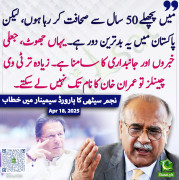
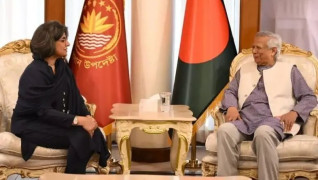



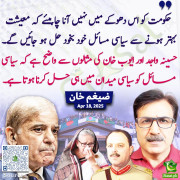











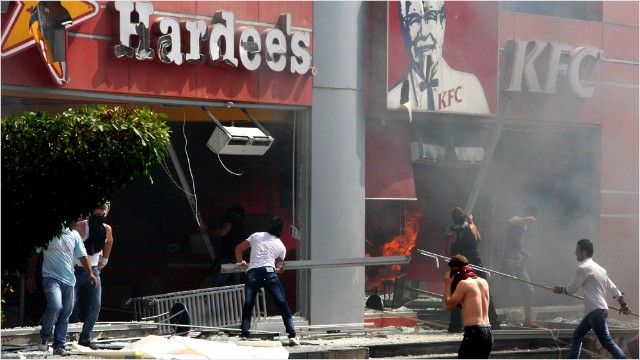


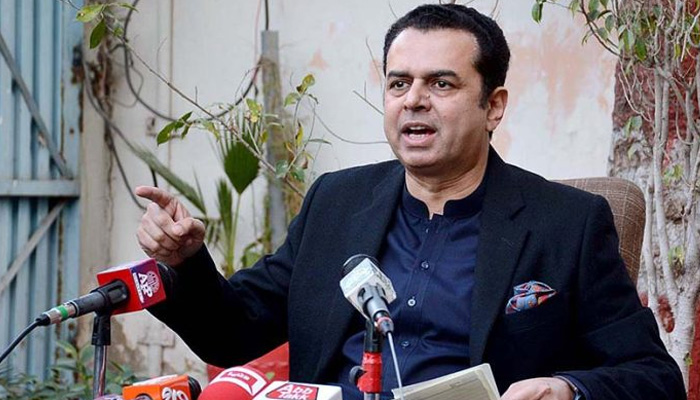

.png?Expires=1839520194&Key-Pair-Id=K2ZIVPTIP2VGHC&Signature=a1IfOw7rPLsPwduCLC0E7FdRDbq6Mf8WvfJEpctWRESM-2do0Ie1M77Zr6otd6UwIwQx4WrcuwUoI3FwGpkkYInKjNB4stohYD8LCpw0jZlhYr1sJejuv3z3DglJv72xZeEHyp2BrcC9aFdmY5uIJkfnEnSauR07cxOQ3e4YJcF5~OfEJZAwytwJUIP2uzyxMtMi2wny8qvmWd1dsnmU9PmneSRQKTDu9SRpJcQW46uv-mhgOstiigfC5hAOdZLngiQ1aygUuNqY8cLdqDNLh9UeV-yRw~XfXS1pFQbxA1vXOY0JKYOtl2RH4OLy6pw531nKMZu16v5veBjZzVGJJQ__)





